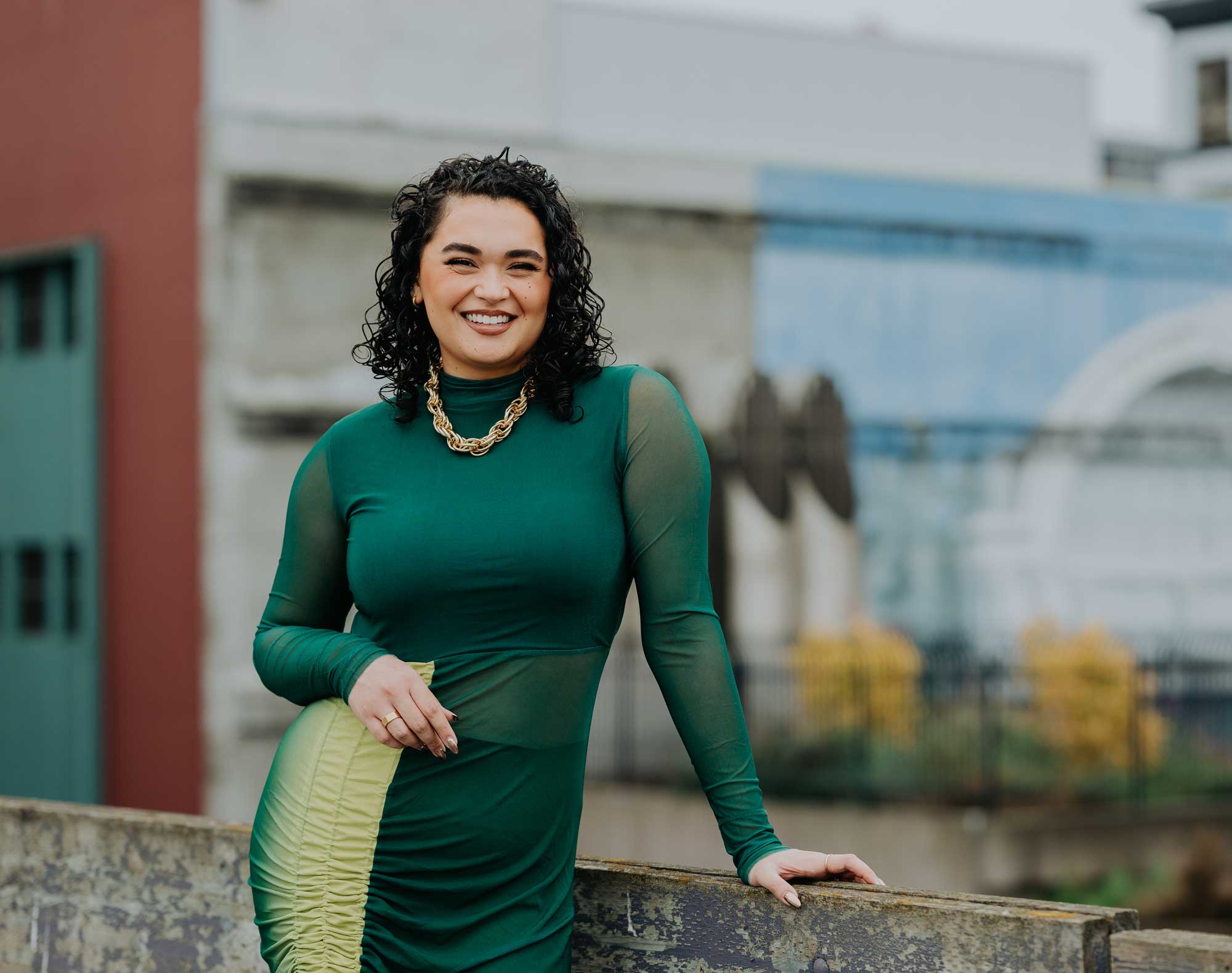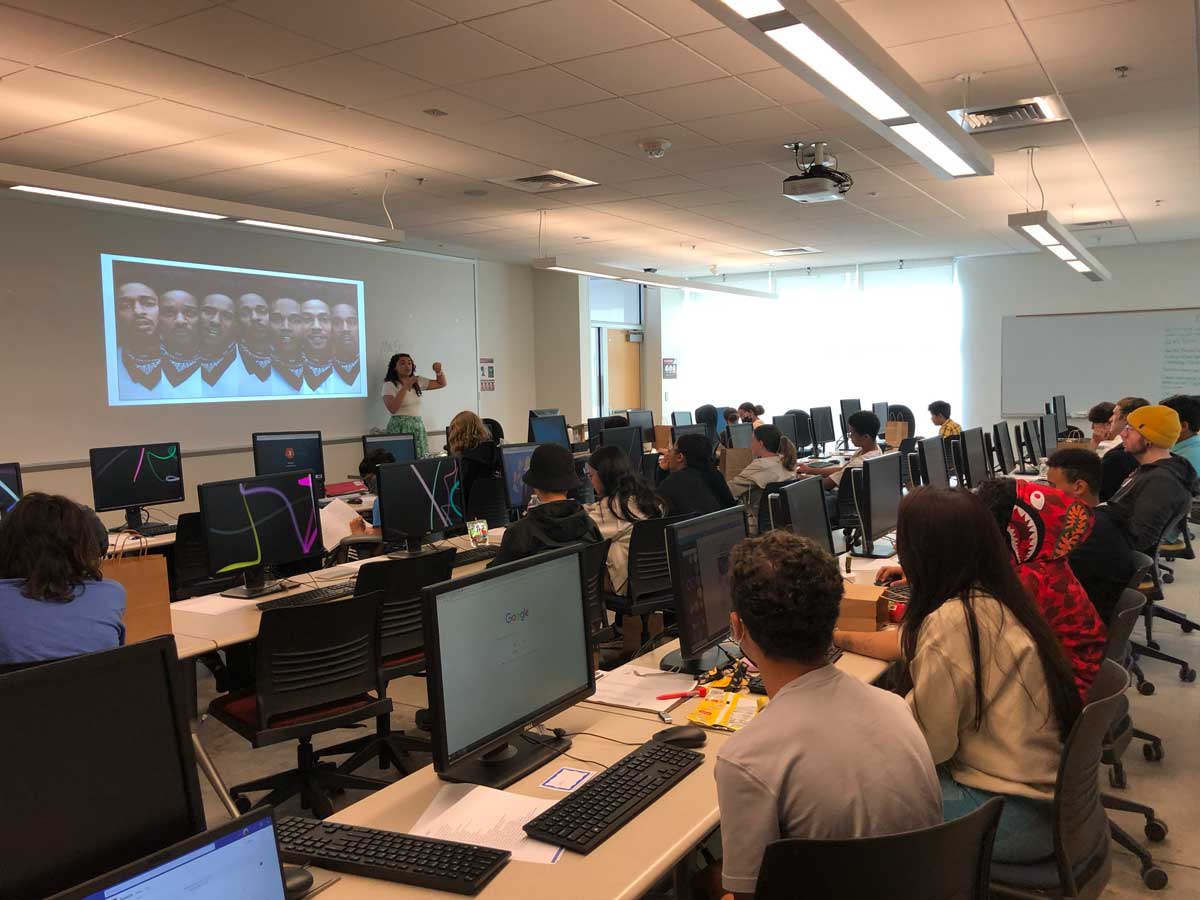
For the daydreamers For the daydreamers For the daydreamers
Emily Lago Anderson founded Evo Learning Academy to turn students' dreams into reality
By Aleenah Ansari | July 24, 2024
Emily Lago Anderson (’25) has always loved learning, but she hasn’t always seen herself represented in STEM classrooms in college or her workplace. That’s why she started Evo Learning Academy, which is dedicated to nurturing the next generation of engineers to shape the future of technology by bringing tech education to K-12 students at minority-serving institutions and public schools.
We sat down with Lago Anderson to learn more about the power of nurturing students’ passions and strengths from a young age, the relationship between education and technology and what the power of daydreaming means to her.
How is your work informed by your own STEM education?
Growing up in the South Puget Sound, there were so many opportunities in sight but not in reach. I wasn’t exposed to computer science or engineering in middle and high school, but I still found myself drawn to math and science, and it taught me to use resources at my disposal to solve problems. I’ve been working in tech for five years, and as my opportunities have grown, I’ve been able to give back tenfold and bring the curriculum that I needed when I was younger to the students I serve.
In what ways are education and technology interconnected?
What a student learns in a fourth or fifth grade classroom can affect what they major in or what jobs they plan to take on in the workforce. My hope is that Evo Learning Academy offers technology education that speaks to the lived experience of these students since they’re the ones who will shape the future of technology with their passions and strengths.
What kind of workshops have you led to help students imagine what roles they can have in tech?
One of my favorite workshops is focused on career pathways in tech outside of software engineering. We even have an activity where students will jump in the middle if they resonate with something, like a love for music, video games or sports. We also break down some of the misconceptions of breaking into tech, like that you don’t have to have perfect grades or get a four-year degree.
I hope that these workshops also help students feel more confident in their skills so they’re better equipped to tackle imposter syndrome and face challenges that come with entering an industry that wasn’t made with them in mind.

Emily Lago Anderson initially couldn’t see a path forward for herself in tech. So once she made it, she decided to light the way for others.
What are the most rewarding parts of running Evo Learning Academy?
I love bringing people to my workplace. When students see an environment that’s built around technological innovation, their faces light up and they see possibilities for how they can shape technology. By the end of the day, they’re asking about when they can come back.
How has your master’s in Learning Sciences and Human Development at the University of Washington informed your work?
Going into tech, I was told that the most valuable thing to do was to be a software engineer, and I initially internalized that idea. I’ve been working with schools since 2018, and it wasn’t until last year that I told myself, ‘this work has value.’ The more people I uplift with my work, the more I’ve been able to accomplish. Getting my master’s in Learning Sciences and Human Development has also been healing because it has reminded me why I love learning so much.
You recently gave a TEDxUofW talk about The Purpose in Daydreaming, where you talked about your own journey into tech, your commitment to a more equitable future, and the power of daydreaming as tomorrow’s reality. What was it like to share your passions with such a large audience?
Part of my talk was informed by my own experience in undergrad at a predominantly white institution, where I felt very alone. That’s why it’s so important to have systems of support that uplift you and remind you just how capable you are. It took a lot of vulnerability to talk about the times when I didn’t feel like I belonged, but sharing my story was an act of building community.
Are there any words of wisdom you’d share with people who are supporting the next generation of change-makers and technologists?
Students can change the world if we give them the opportunity to see the ways they can change the future. Ask students what they feel like they’re passionate about, and empower them to do that. After all, tech needs diverse voices to shape our products and experiences.
Listen to Lago Anderson’s TEDxUofW talk about the power of daydreaming, and learn more about Evo Learning Academy.
About the author: Aleenah Ansari (she/her) is equal parts storyteller, creative problem solver, and journalist at heart who’s rooted in the stories of people behind products, companies, and initiatives. She writes about travel, entrepreneurship, mental health and wellness, and representation in media for Insider, The Seattle Times, Byrdie, and more. You can usually find her searching for murals, reading a book by a BIPOC author, or planning her next trip to New York. You can learn more at www.aleenahansari.com.